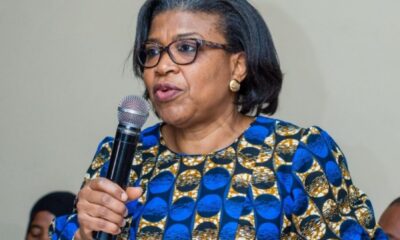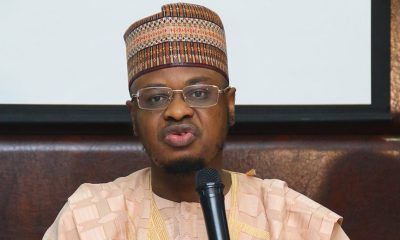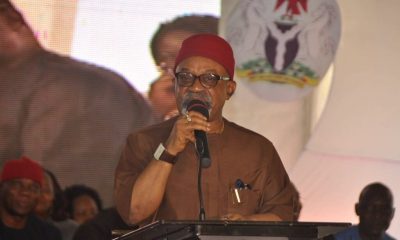News
From Obasanjo to Buhari… how FG’s debt profile surged 86.8% to N26.9trn in 21 years

Nigeria’s public debt has been on the rise. Despite securing debt relief during the Olusegun Obasanjo-led administration, successive governments have continued on a borrowing spree — the federal government’s component of the public debt surging 86.8 percent to N26.9 trillion in the last 21 years.
This has raised concerns among Nigerians on the debt sustainability of the country amid dwindling revenue to meet the debt obligations to creditors.
Within two weeks, the senate approved three different loan requests by President Muhammadu Buhari.
On July 7, 2021, the upper chamber approved a loan request of N2.343 trillion, approximately $6 billion and another $8.3 billion and €490 million.
Defending one of the loan requests, the Debt Management Office (DMO) said it is part of a borrowing plan for the 2021 budget.
“The proposed new capital raising is the new external borrowing provided in the 2021 Appropriation Act to part finance the deficit in the budget. In other words, the new capital raising has already been approved in the budgetary process by the executive and legislative arms of government,” the DMO had said in a statement.
As of March 2021, Nigeria’s total public debt has hit N33.1 trillion ($87.24 billion) — an accumulation of borrowings from successive governments, of which most were borrowed since the return to democratic rule in 1999.
The overall public debt is the total debt accrued by federal, states, and the FCT from local and international lenders.
Of the N33.1 trillion, the federal government alone borrowed N26.91 trillion — this includes the FGN bonds, Sukuk, green bonds and Euro bonds.
Finally, after weeks of data aggregation, number crunching, dissecting and analyses of freedom of information (FOI) response from the Debt Management Office (DMO), TheCable presents findings that highlight how Nigeria’s aggressive borrowing defies its fiscal responsibility laws.
The analyses also include data from the DMO, National Bureau of Statistical (NBS), and fiscal papers from the Budget Office of the Federation.
FG DEBT CLIMBED 86.8% TO N26.9 TRILLION IN 21 YEARS
Data from the DMO seen by TheCable showed that federal government borrowings (local and foreign debt) climbed from N3.55 trillion in 1999 to N26.91 trillion at the end of March 2021 (the country’s latest official figure).
This represents an 86.8 percent increase in 21 years, comprising the administrations of Olusegun Obasanjo, Umar Musa Yar’Adua, Goodluck Jonathan, and the current Muhammadu Buhari.
From Obasanjo to Buhari… how FG’s debt profile surged 86.8% to N26.9trn in 21 years
HOW MUCH BUHARI BORROWED IN 6 YEARS
The Budget Office’s medium-term expenditure framework and fiscal strategy paper from 2015 showed that the Buhari-led administration incurred N7.63 trillion in domestic debt from June 2015 to December 2020.
On external borrowings, President Buhari increased debt from $7.3 billion in 2015 to $28.57 billion as of December 2020. This means that the president incurred $21.27 billion on foreign loans to the country’s debt portfolio.
The country’s exchange rate moved from N197 to a dollar in 2015 to N381 at the end of December 2020.
Analysis of consolidated debt showed that the external debt increased by 291.37 percent while domestic debt grew by 86.31 percent in the last six years of the Buhari government.
Overall, the Buhari-led government has had an accumulated debt of N17.06 trillion as of March 2021, using the N381 exchange rate. This represents a 173.2 percent increase from when he was elected president in 2015.
public debt
DEBT PROFILE UNDER JONATHAN’S ADMINISTRATION
At the beginning of former President Goodluck Jonathan’s tenure in 2011, the federal government had an accumulated debt of N6.17 trillion.
Analysis of the debt figure showed that local debt amounted to N5.62 trillion while foreign debt stood at $3.5 billion (about N548.65 billion, using the exchange rate of N156.7/$1).
By the end of 2015, the foreign debt component hit $7.3 billion, while domestic debt increased by N8.4 trillion. The country’s exchange rate also stood at N197/$1.
Overall, the federal government component of the total public debt increased from N6.17 trillion in 2011 to N9.8 trillion in 2015, representing an increase of N4.18 trillion or 74.37 percent.
public debt
YAR’ADUA/JONATHAN’S BORROWINGS
Under the Umar Musa Yar’Adua/Goodluck Jonathan-led government between 2007 and 2011, domestic debt of the federal government moved from N2.17 trillion to N5.62 trillion. The foreign component of the debt also increased from $2.11 billion to $3.5 billion within the period.
The country’s exchange rate also moved from N116.8/$1 to N156.7/$1.
The combined debt profile increased from N2.42 trillion to N6.17 trillion in four years, representing a 155 percent jump.
Of the debt figure, Jonathan completed the tenure from May 2010 to May 2011 after the death of Yar’Adua. The period saw a surge in the federal government’s debt from N4.94 trillion to N6.17 trillion. This represents a 37.4 percent increase in one year.
OLUSEGUN OBASANJO’S TENURE
During the tenure of former president Olusegun Obasanjo, the debt level of the federal government reduced from N3.55 trillion in 1999 to N2.42 trillion at the end of 2007.
The 8-year term of Obasanjo resulted in a dip in FG’s local and foreign debt level, representing a 32 percent decline.
The country’s exchange rate was between N98.02 to N116.8 to a dollar during the tenure.
Analysis of the figures showed that external debt decreased from $28.04 billion by 1999 to $2.11 billion at the end of 2007. However, the domestic component increased from N798 billion to N2.17 trillion within the same period.
The huge decline in foreign debt was a result of the substantial reduction following the pay-off of the outstanding debts owed to the London Clubs of Creditors in the first quarter of 2007.
BUHARI, NIGERIA’S BIGGEST BORROWER, VIOLATING FINANCIAL LAWS
So far, Buhari is the country’s biggest borrower, increasing public debt (FG component) by more than 173 percent. Next to the Buhari government is the Yar’Adua/Jonathan administration with a 155 percent surge in borrowing.
The current government violates important financial laws in the country — the Fiscal Responsibility Act, and the CBN Act 2007.
Last year, the government exceeded the fiscal borrowing threshold as stipulated in the fiscal act.
Zainab Ahmed, minister of finance, budget and national planning, admitted to this on the grounds that COVID-19 was good enough reason to breach the act.
The fiscal responsibility law provides a limit of three percent debt threshold for sustainability, but the president can “exceed the ceiling if there is a clear and present threat to national security or sovereignty of Nigeria”.
In 2020, the country’s budget deficit was at about four percent of GDP, clearly breaking the law.
On overdraft, section 38, sub-section 1 and 2, of the CBN Act, said, “the Bank may grant temporary advances to the Federal Government in respect of temporary deficiency of budget revenue” and “the total amount of such advances outstanding shall not at any time exceed 5 percent of the previous year’s actual revenue of the Federal Government”.
By the end of 2020, CBN overdrafts to the Buhari government exceeded the limit by 69 percent of the revenue generated in 2019 – in a blatant violation of the apex bank rules. The government’s revenue in the year was N4.1 trillion, and overdraft stood at N2.9 trillion.
Also, Nigeria’s borrowing limit as a percent of GDP stood at 34.8 percent in 2020, well above 25 percent for the year. Earlier this year, the federal executive council (FEC) had strategically raised the borrowing limit to 40 percent in its Medium-term debt management strategy for Nigeria for the period 2020-2023.
While Nigeria’s debt-to-GDP is lower than those of its peers, its debt-to-revenue is too low to sustain the country. Of every N100 government makes in revenue, N97 now goes to debt servicing.
In the last four administrations, only Obasanjo’s team reduced public debt; his government recorded a 32 percent decline with the London Club agreement.
INCREASING PUBLIC DEBT WORRYING
While borrowing is required to support the economy, sustainability transparency and sustainable repayment plan are crucial.
Femi Oke, an economist, said Nigeria’s soaring high debt profile is not good for the country.
“The Nigerian government borrows in the worst possible way and in a very outdated manner. This causes a backlash to the government. Because Nigeria’s debts are not linked to any assets, we just go to the treasury bill market and borrow, at any rate, that anybody wants to give you,” he said.
“There are many other countries who borrow more than what Nigeria is borrowing and don’t have any problem paying back. They borrow intelligently and efficiently, in a way that their debts service themselves.
“A more efficient way of borrowing is for the Federal Government to migrate all the debts to asset-linked debts. This means structuring the borrowing transaction like investments. There must be an underlying asset to which borrowers can use to recover the principal they gave the country plus profit.”
Vahyala Kwaga, senior researcher and policy analyst at BudgIT, said the level of borrowing – specifically in 2021- is the highest it has been in the last six years.
“The government is borrowing more, spending more and earning less revenue. For context, the government budgeted about N5.37 trillion in revenue in 2020 but only earned a total of N3.42 trillion,” Kwaga said.
“There is also no commensurate rise in revenue to counteract the continuing rise in debt servicing. A casual look at the debt servicing level from 2015 to 2020 shows that the level has steadily increased since then.
“These amounts include debt servicing on interests for ‘ways and means’ and ‘sinking fund to retire maturing Loans.’”
NIGERIA’S ACTUAL DEBT COULD BE 48.7TRN
Wilson Erumebor, a senior economist at Nigerian Economic Summit Group, said Nigeria is a case where expenditure keeps rising, revenue not improving as expected, creating a wide fiscal deficit that is majorly financed by borrowing.
“While borrowing is required to support the economy, especially given the impact of the pandemic, what we need to be concerned about is how sustainable Nigeria’s debt position is,” he said.
“Debt has risen N33.1 trillion as of March 2021, an increase of 162.7% in the space of about five years.
“When we include AMCON’s liabilities and CBN’s ways and means, debt could amount to about N48.7 trillion, which is around 32 percent of GDP.
“Debt to GDP may seem quite low at 32 percent, we must understand that debt is serviced with revenues, so if debt servicing is increasing and revenue is not performing, then we have a problem.”
Erumebor suggests that the federal government must improve efficiency, transparency, blocking leakages, and deliver value on public projects, despite limited resources.
“We must work towards unlocking many sectors and many areas where the country can earn revenue.”
In 2020, the International Monetary Fund (IMF) said Nigeria’s low debt-to-GDP ratio is highly vulnerable to shocks.
“Despite Nigeria’s relatively low debt level, liquidity-based indicators-driven by low revenue mobilisation-remain concerning, with the interest bill representing a high share of government revenue (but low relative to GDP),” IMF said in its country’s report for Nigeria.
“Stress scenarios confirm the vulnerability of public debt to a low growth/wide primary deficit scenario. The interest-to-revenue ratio is particularly vulnerable to a real interest rate shock but remains sustainable.”
Recently, market researchers at United Capital also expressed concern over the country’s rising debt sustainability risk. “The government has historically justified its rising debt profile by the compliant debt-to-GDP ratio of less than 30.0%,” the research firm said.
“However, we reiterate our position that the FG’s debt service cost as a percentage of revenue is a fairer reflection of the country’s debt sustainability position.”
At an overall public debt of N33.1 trillion ($87.24 billion), the implication remains that every Nigerian owes both local and foreign organisations N165, 500.
News
Tinubu skewed appointments can boomerang, Ndume warns
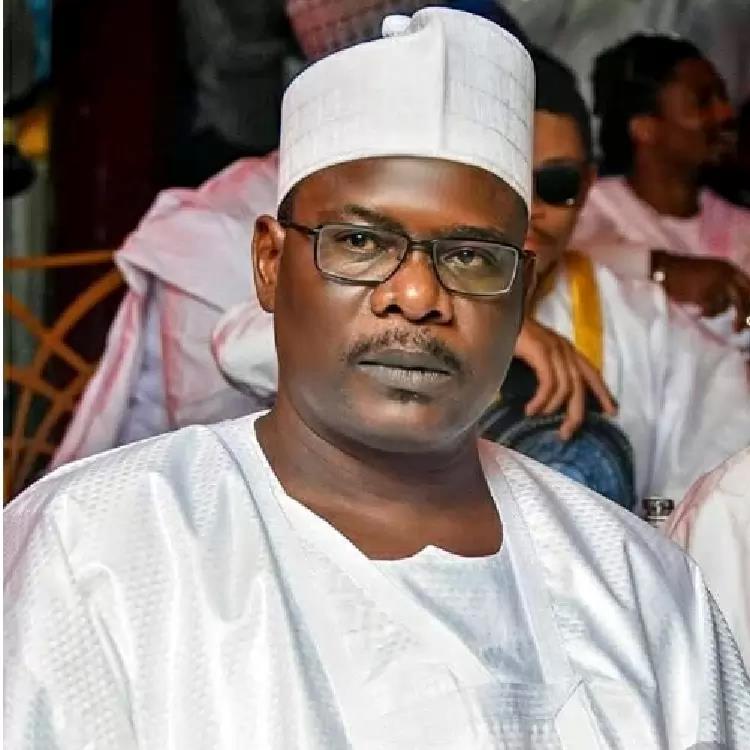
Tinubu skewed appointments can boomerang, Ndume warns
Senator Ali Ndume (APC Borno South) has faulted the federal as well as political appointments made by President Bola Ahmed Tinubu.
According to him, the President has favoured an ethnic group, contrary to the dictates of the Federal Character guidelines.
Ndume said he was shocked when he read the endless and sectional list of federal political appointees going viral on social media, describing the situation as non-inclusive and not reflecting the ‘Renewed Hope Agenda’ of Mr President.
He spoke on Arise News (Prime Time) on Monday, which was monitored by our correspondent.
He pointed out that as a lawmaker, and based on his observation, President Tinubu’s appointments so far violated federal character and should be corrected.
The senator, who is a member of the ruling APC, has always been vocal and a critic, especially on some government policies and programmes allegedly not in favour of the Nigerian masses and the electorate.
Responding to a question on the list of political appointees by Mr President, which is in circulation and in favour of one ethnic group, Ndume said, “Well, I don’t think I have anything to add, because the figures are there; you can look at it; I sent you all. It is not that I am making accusations or saying that Mr President does not have the right to make appointments, but Section 14/3 of the Constitution is very clear. When you look at it vis-à-vis the appointments made so far, they are political appointments.
“If appointments that are professional, so to say, like you can’t appoint someone who is not a soldier to become Chief of Army Staff, or you can’t appoint someone who is not a police officer to become the Inspector General of Police, IGP, but then, when you come to look at political appointments, the Constitution, as I said earlier, is very clear, and it is because to avoid such infractions that the constitution of Section 14/3 states that political appointments should reflect the Federal Character….., which is not the case here.
“All I am saying is to call the attention of Mr President to such infractions so that they can be corrected; otherwise, this thing can boomerang at a certain period of time. Just like you said, people look at me as somebody that is critical of the government, but I have the right to do that because that is why I am elected as a legislator at the National Assembly in the first place.
“Collectively, we are supposed to oversee the acts of Mr President and point out some of the irregularities. This is what we swore to do. It is not personal, because if you count five people in the North that have a personal relationship with President Bola Ahmed Tinubu, I (Ndume) am one of them. But that does not stop me from saying the truth, because I have the obligation to do that in the interest of all Nigerians.
“As a Nigerian and a lawmaker, I have the right to voice this out, but Tinubu’s attack dogs will attack me, not the message. It is not personal, as I said, especially now that everybody will stand before God Almighty and account for his/her own stewardship as leaders. It is unfortunate that after this interaction, these so-called Tinubu Boys or people will start attacking Ndume, saying he is a very frustrating person,” Ndume said.
News
FG screens Fani-Kayode, Femi Pedro, others for ambassadorial posts, Reno Omokri missing
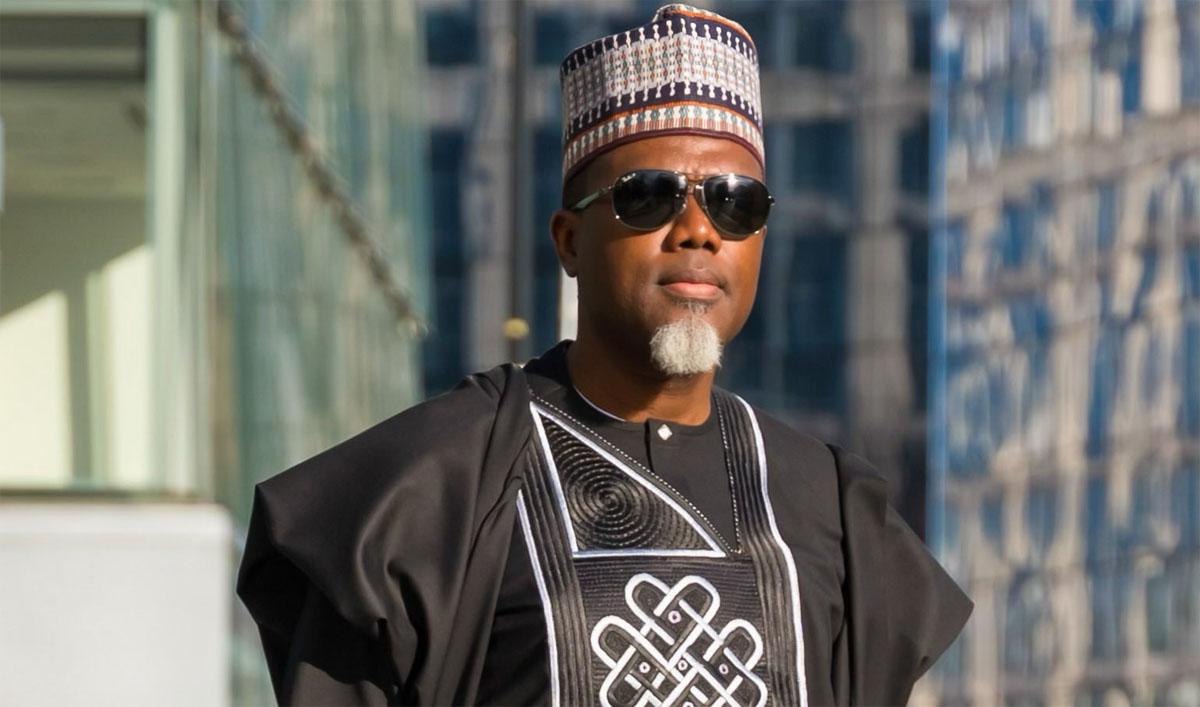
FG screens Fani-Kayode, Femi Pedro, others for ambassadorial posts, Reno Omokri missing
The Federal Government has begun vetting candidates for ambassadorial postings across its 109 diplomatic missions, including 76 embassies, 22 high commissions, and 11 consulates.
According to a report by Punch, credible sources revealed that former Aviation Minister Femi Fani-Kayode and former Lagos State Deputy Governor Femi Pedro are among the individuals undergoing screening.
The paper revealed that the process is being carried out through regional offices of the Department of State Services (DSS), rather than through a centralised mechanism.
Presidency officials confirmed that nominees have been contacted and asked to submit personal, educational, and professional records.
“They’re already doing security checks with DSS. When they have cleared security checks, we will release the list. Only those who have been cleared are announced. The process is ongoing. I know that we should have a list before the end of this month (April),” an official disclosed anonymously.
Another source stated, “The vetting is not done centrally. It is based on the location of the nominees. Nominees have been reached to provide personal history and information such as where they attended school, what appointments they have held, and the like. So, it is by location.”
READ ALSO:
- Israel admits mistakes over medic killings in Gaza
- I’m holier than you, Lizzy Anjorin tackles gospel artiste Tope Alabi
- Death of pregnant woman denied hospital care worries Lagos govt
Since September 2023, President Bola Tinubu has operated his foreign policy built on the “4Ds”—Democracy, Development, Demography, and Diaspora—without confirmed ambassadors in place. That same month, he recalled more than 83 ambassadors, both career and political.
In December, sources said the President spent part of his holiday reviewing nominees for diplomatic assignments with plans to send a consolidated list to the National Assembly. However, the process was delayed in January due to financial constraints.
One presidency insider said the delay was largely due to the estimated $1 billion required to settle outstanding obligations including the arrears of foreign service staff, renovations, and vehicle replacements.
“You see, the major issue is money. Not money to pay them [ambassadors], because how much is their salaries and benefits? The main money is CAPEX [Capital Expenditure]. By the time they put the cost together to fix the issues, it is running to almost $1bn.
“Most of those embassies, almost 90 per cent, are rundown. Either the residence is not good, the embassy does not have a functional office, or their rent has expired… I understand that some of them don’t have serviceable vehicles… Some of them don’t even have power and running water,” the source explained.
Foreign Affairs Minister Yusuf Tuggar has also blamed the delay on lack of adequate funding.
“It is a money problem,” Tuggar said during a May 2023 ministerial briefing in Abuja. “There is no point sending out ambassadors if you do not have the funds for them to even travel to their designated countries and to run the missions effectively… Mr President is working on it, and it will be done in due course.”
READ ALSO:
- Ancelotti laments after Valencia beat Real Madrid
- Jose Mourinho banned for three games, fined $7734
- Fuel prices to fall as global cost of oil falls
Although the 2025 budget includes provisions to address some of the issues, insiders say the funding is insufficient.
While the complete list of ambassadorial nominees remains classified, officials confirmed that several prominent figures are undergoing screening.
“They’re going to announce the appointments soon. They are being screened as we speak… FFK [Femi Fani-Kayode] is on the list. These are some of the controversial names that have been put forward as well. Then there is Fola Adeola [co-founder of Guaranty Trust Bank] and Femi Pedro too. They’re moving on with the process more quickly this time,” a source said.
According to another official, the rigorous screening is intended to ensure none of the candidates pose reputational or security risks to the country.
There were speculations that former presidential aide Reno Omokri had been shortlisted, but a source in the presidency dismissed the claim.
“Reno is not on the list. But FFK is there,” the source said.
Presidential adviser Bayo Onanuga confirmed that the list will include both career and political nominees and will undergo multiple layers of review before submission to the legislature.
“Don’t forget that the ambassadorial list has two components. There are career ambassadors and political ambassadors. The foreign affairs list and the consolidated list will still go through certain processes before they are released,” he said.
Two individuals believed to be among the nominees declined to comment when contacted. They neither confirmed nor denied their inclusion.
FG screens Fani-Kayode, Femi Pedro, others for ambassadorial posts, Reno Omokri missing
News
I didn’t collapse, says Wike, warns death rumour mongers
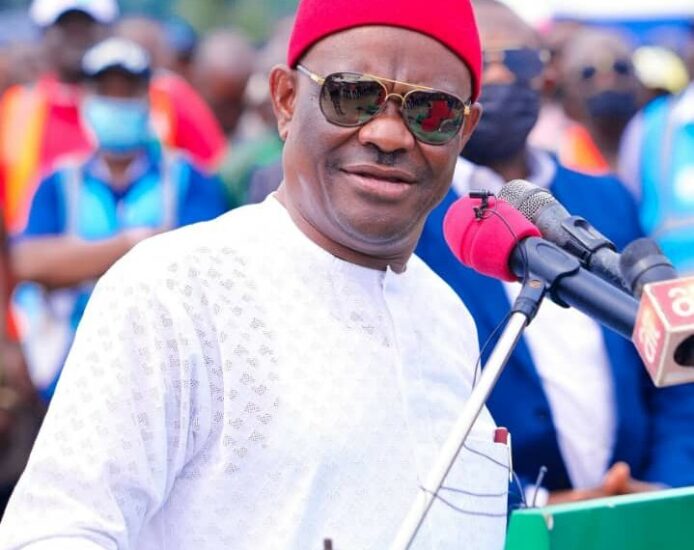
I didn’t collapse, says Wike, warns death rumour mongers
Minister of the Federal Capital Territory, Nyesom Wike, has debunked reports that he collapsed and was rushed to the hospital last week.
Wike described the reports of his rumoured collapse as the handiwork of “baseless” people trying to score cheap political points.
He spoke after inspecting four ongoing projects in the FCT, including the International Conference Centre.
Online posts circulating on X had surfaced alleging that the minister collapsed at an event on Friday in the FCT.
The rumour also claimed that Wike was immediately rushed to an undisclosed hospital, where he received treatment.
Reacting, Wike said, “There was no time I collapsed, there was no time anybody took me overseas. But you see me every day. The day Mr President broke iftar on his birthday, I was there.
“The next day, I led Abuja residents to pay Sallah homage. I see all those stories just died down. This is politics. We have thick skin. Those things don’t bother us. We are not distracted. We are focused on our jobs.
“So, I thank Nigerians for being worried, which should be, but people should not wish their fellow human beings such a thing to happen.
“We know that we will die one day. Nobody will remain in this world forever, but it is only God that says the day you will die, not any human being to say you will die today or you will die tomorrow.
“So, you have seen that I am even healthier than most of them who carried that rumour and I will write their condolence letters. I can assure you that I will write their condolence letters.”
-
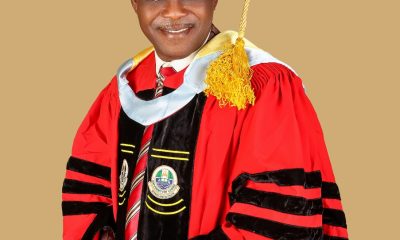
 Education2 days ago
Education2 days agoErudite mass comm lecturer Oscar Odiboh becomes full professor at Delta State University
-

 Entertainment3 days ago
Entertainment3 days agoA colleague raped me, Actress Lolo 1 alleges
-
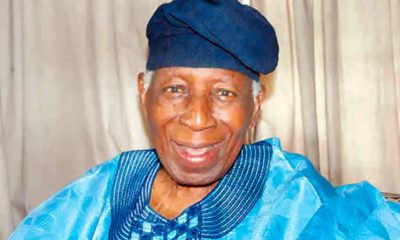
 metro2 days ago
metro2 days agoBreaking: Former Oyo governor Olunloyo dies at 89
-

 International3 days ago
International3 days agoTrump: VOA goes off air in Nigeria, Ghana, others
-

 metro2 days ago
metro2 days agoNurse leaves US, seeks new life in Nigeria, says everything not money
-

 Politics2 days ago
Politics2 days agoBREAKING: Nickolas Ukachukwu defeats Ozigbo to win Anambra APC gov ticket
-

 Health3 days ago
Health3 days agoPoisonous fluorides in toothpaste: Pharmacists counter televangelist’s claims
-

 metro1 day ago
metro1 day agoHeavy gunfire in FCT, police recover stolen cars, suspects arrested

